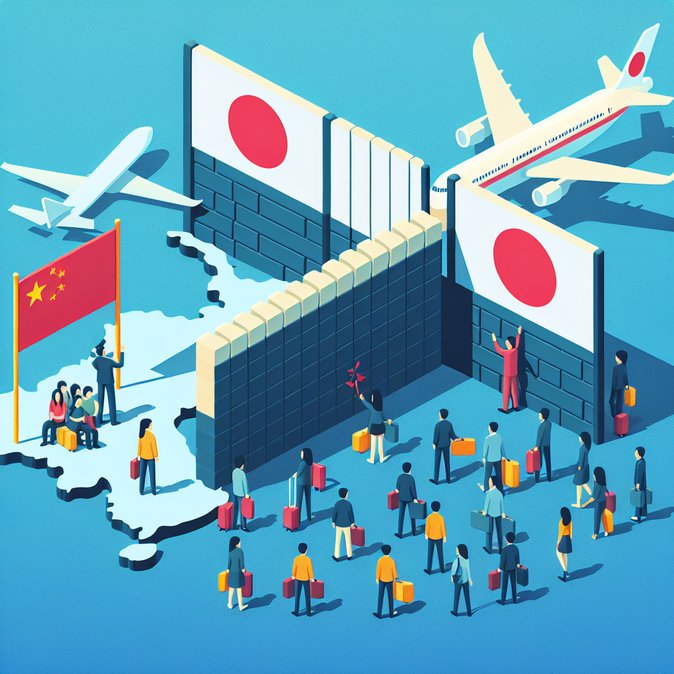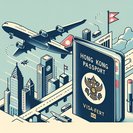
China’s foreign ministry and its embassy in Tokyo have issued an unusually blunt advisory telling Chinese nationals to “temporarily avoid travelling to Japan.” The notice, posted late on 14 November and amplified across WeChat and Weibo on 15 November, cites what Beijing calls “blatantly provocative” remarks by Japan’s new Prime Minister Sanae Takaichi, who told parliament that Tokyo could intervene militarily if China used force against Taiwan.
The advisory is significant because Japan is normally one of the most popular outbound destinations for Chinese tourists and a key stop for corporate road-shows and supply-chain managers. More than 7 million mainland visitors entered Japan in the first nine months of 2025, accounting for almost a quarter of all foreign arrivals. A chill in leisure traffic and short-notice cancellations of meetings could dent Japan’s retail and hospitality sectors just as the winter peak season begins, while also disrupting regional executives who rely on the frequent Shanghai–Tokyo air bridge.
![China warns citizens to avoid travel to Japan amid escalating Taiwan-related row]()
Diplomatically, the move ratchets up pressure on Tokyo. Japan’s government lodged a formal protest on 15 November; Chief Cabinet Secretary Minoru Kihara urged Beijing to “take appropriate measures” and stressed the importance of “multilayered communication.” Analysts note that Beijing has repeatedly used the spending power of its tourists as leverage—restrictions on group travel to South Korea in 2017 over the THAAD missile-defence issue cost Seoul an estimated US $5 billion in lost revenue.
For Chinese companies, the advisory has immediate compliance implications: staff trips to Japan now require enhanced risk assessments and written justifications; many firms have activated contingency plans that reroute regional meetings to Seoul or Singapore. Japanese firms doing business on the mainland face the reverse dilemma as political tensions raise the prospect of consumer boycotts.
Practically, travellers already in Japan are urged by the embassy to “closely monitor the local security situation, raise vigilance and strengthen self-protection.” Companies with Japanese exposure should review force-majeure clauses, update duty-of-care protocols, and watch for further regulatory action, such as visa-processing slow-downs or tighter group-tour controls.
The advisory is significant because Japan is normally one of the most popular outbound destinations for Chinese tourists and a key stop for corporate road-shows and supply-chain managers. More than 7 million mainland visitors entered Japan in the first nine months of 2025, accounting for almost a quarter of all foreign arrivals. A chill in leisure traffic and short-notice cancellations of meetings could dent Japan’s retail and hospitality sectors just as the winter peak season begins, while also disrupting regional executives who rely on the frequent Shanghai–Tokyo air bridge.

Diplomatically, the move ratchets up pressure on Tokyo. Japan’s government lodged a formal protest on 15 November; Chief Cabinet Secretary Minoru Kihara urged Beijing to “take appropriate measures” and stressed the importance of “multilayered communication.” Analysts note that Beijing has repeatedly used the spending power of its tourists as leverage—restrictions on group travel to South Korea in 2017 over the THAAD missile-defence issue cost Seoul an estimated US $5 billion in lost revenue.
For Chinese companies, the advisory has immediate compliance implications: staff trips to Japan now require enhanced risk assessments and written justifications; many firms have activated contingency plans that reroute regional meetings to Seoul or Singapore. Japanese firms doing business on the mainland face the reverse dilemma as political tensions raise the prospect of consumer boycotts.
Practically, travellers already in Japan are urged by the embassy to “closely monitor the local security situation, raise vigilance and strengthen self-protection.” Companies with Japanese exposure should review force-majeure clauses, update duty-of-care protocols, and watch for further regulatory action, such as visa-processing slow-downs or tighter group-tour controls.









